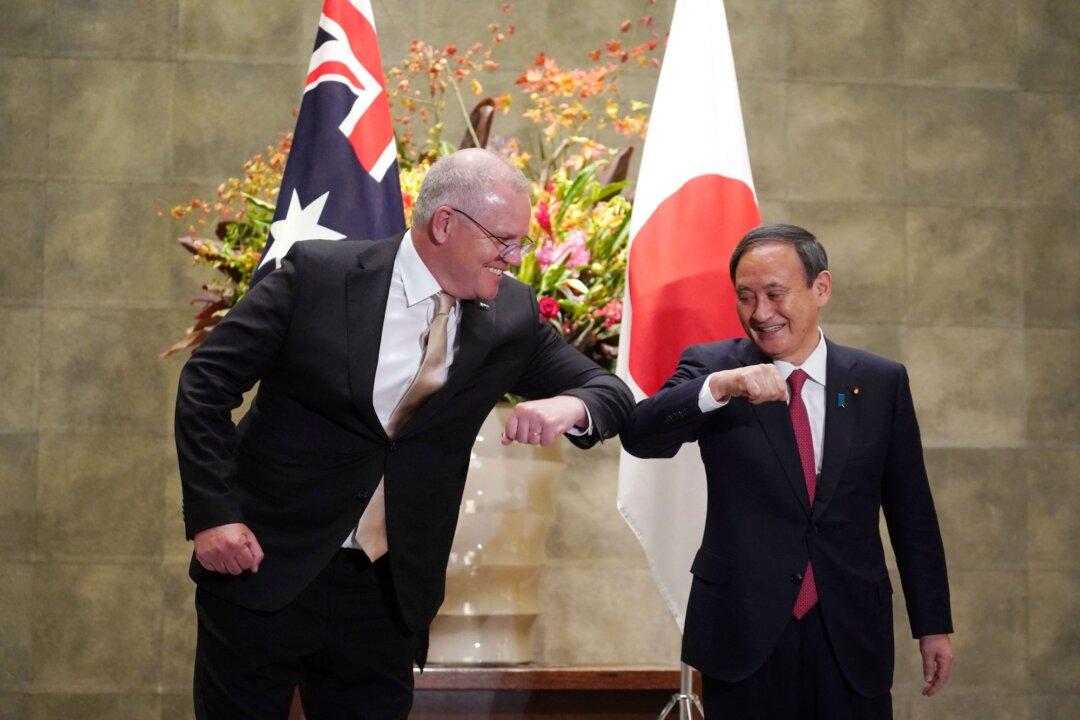Australia and Japan will join forces to oppose China’s economic bullying, as both countries continue to lose patience with Beijing’s aggressive international behavior.
In a statement following a joint virtual meeting on June 9, Australia and Japan’s foreign ministers, Marise Payne and Motegi Toshimitsu, and defense ministers, Peter Dutton and Kishi Nobuo, announced that both countries “would commit to opposing coercion and destabilizing behavior by economic means, which undermines the rules-based international system.”




